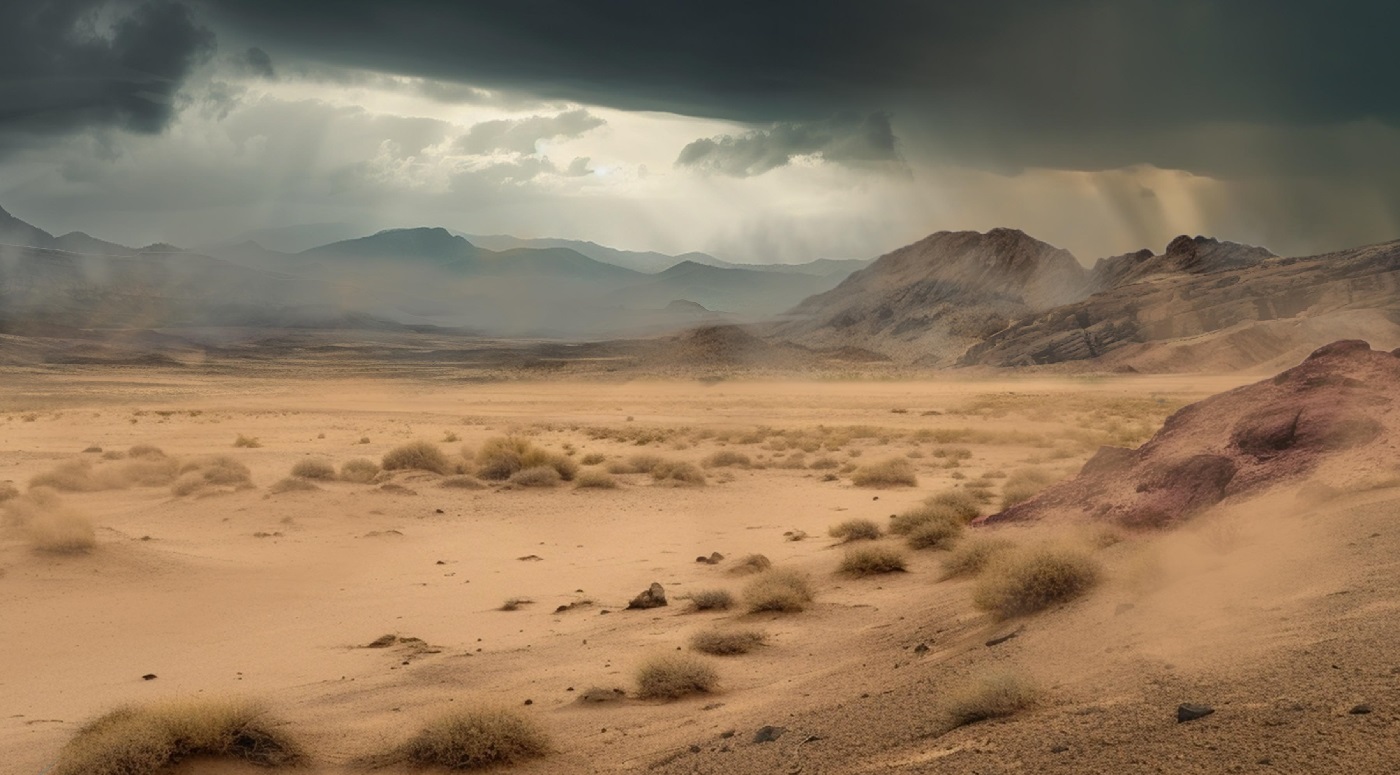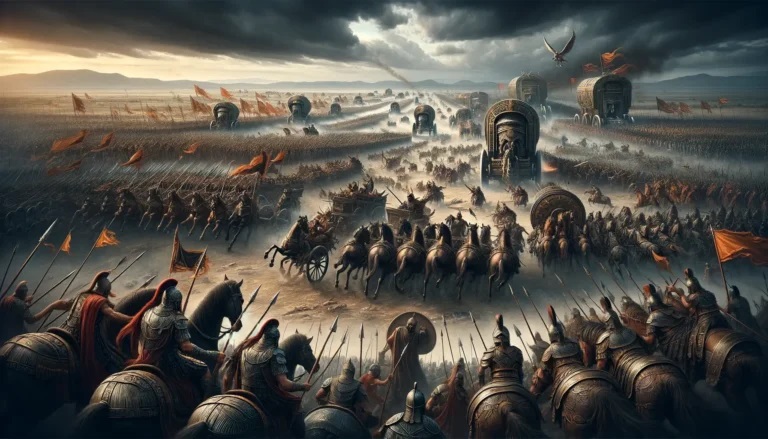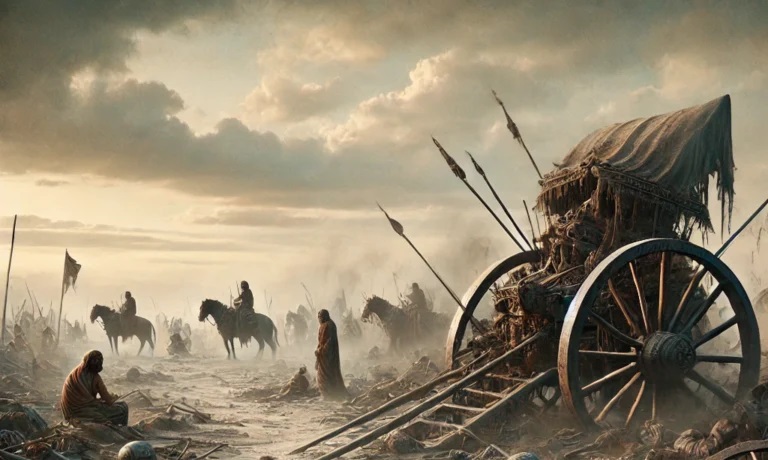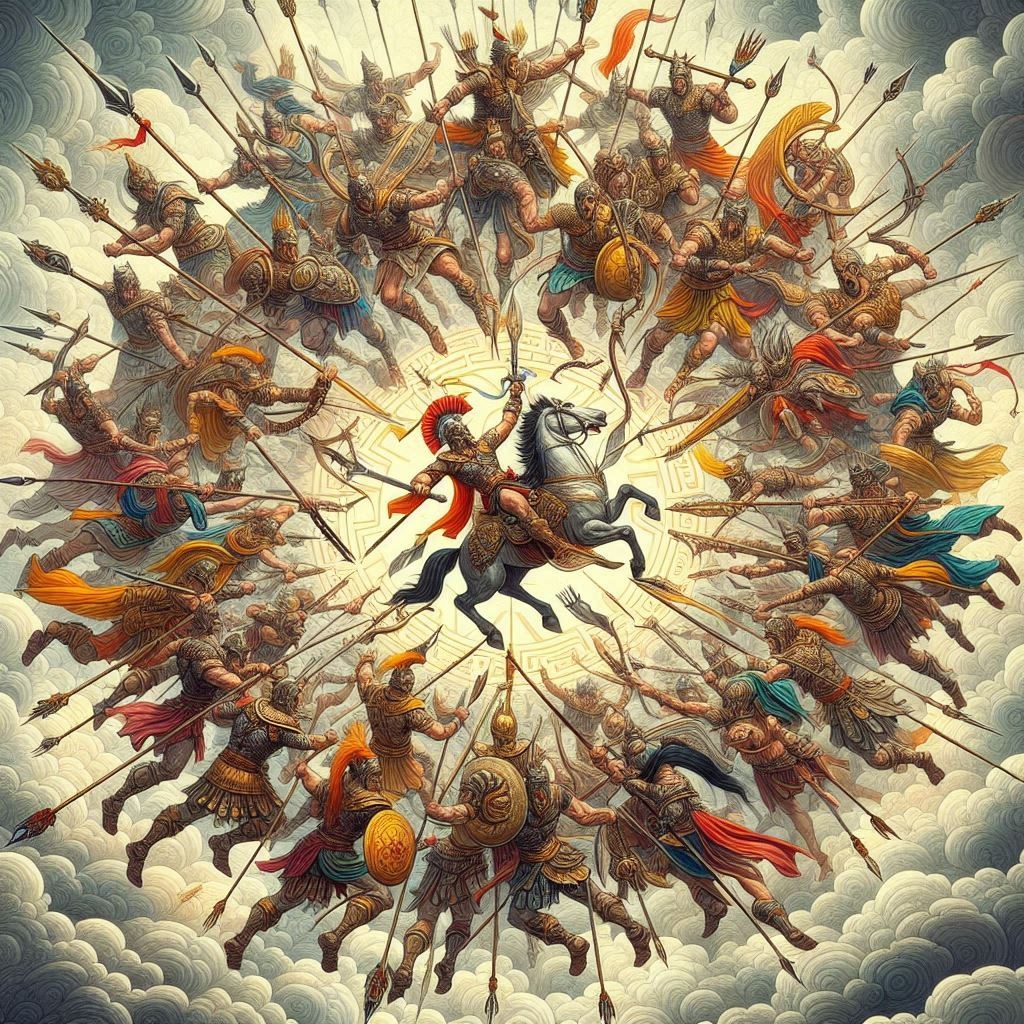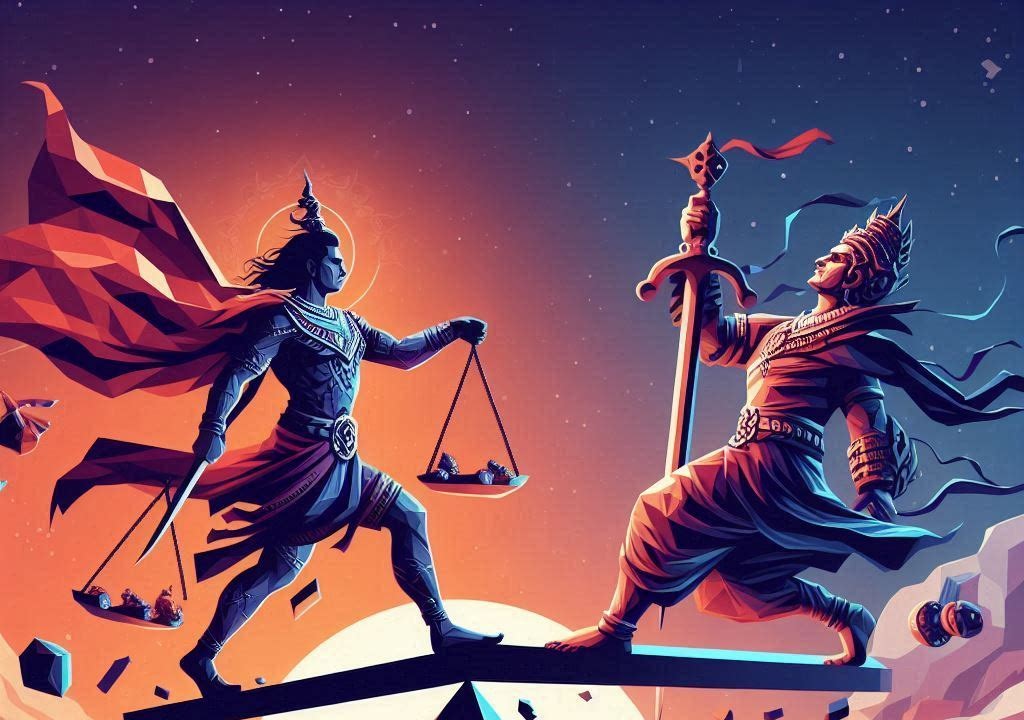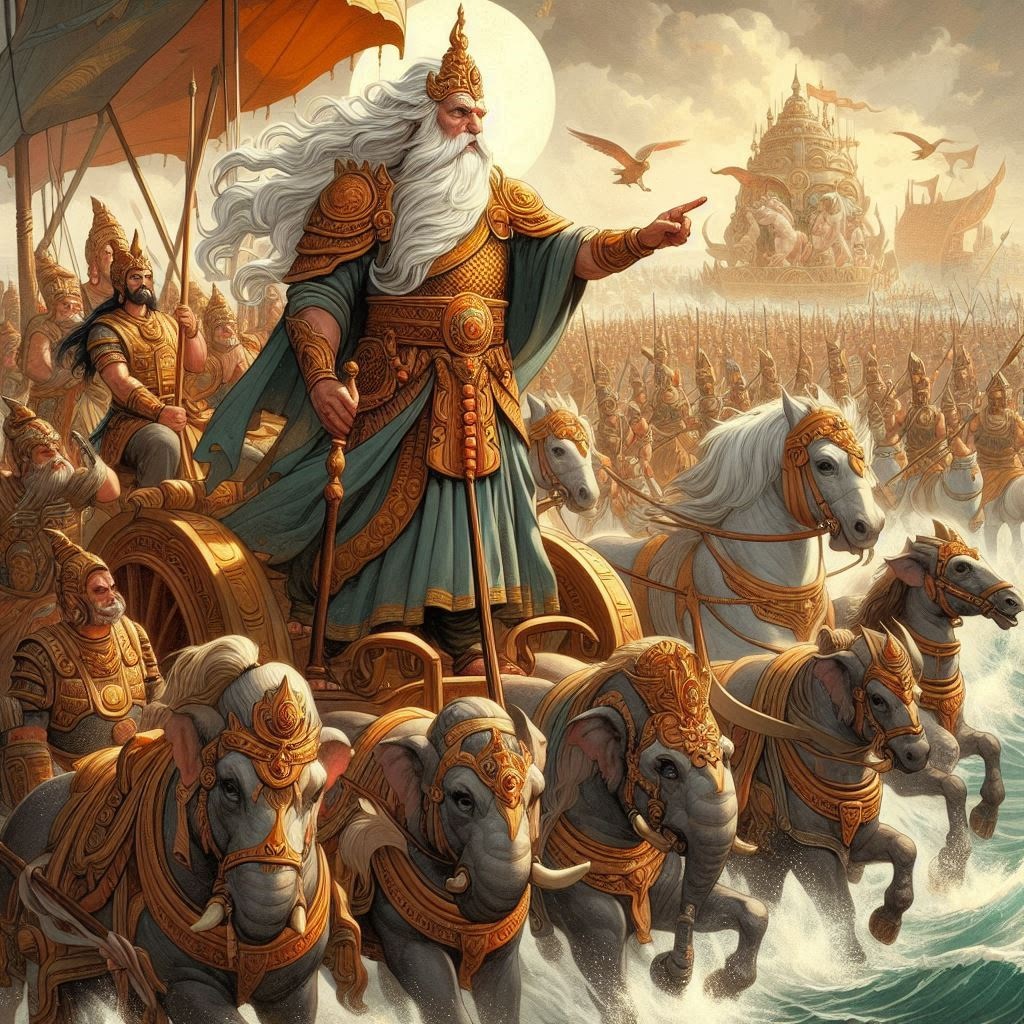The eighteenth day dawned as a somber requiem for a world irrevocably altered. Kurukshetra, once a verdant expanse, was now a crimson tapestry, a macabre masterpiece woven with threads of life and death. The air was thick with anticipation, a tension palpable enough to be cut with a sword. This was the final act, the grand crescendo of a tragedy that had spanned generations.
Arjuna and Karna, the two celestial bodies around which this cosmic conflict revolved, stood as polar opposites. Arjuna, the righteous Pandava, embodied duty, compassion, and divine grace. Karna, the tragic Kaurava, was a complex figure, a warrior of unparalleled skill, haunted by a destiny not of his own making. Their confrontation was more than just a battle; it was a metaphysical clash of ideals, a cosmic duel for the soul of the world.
As they charged towards each other, the battlefield fell silent, the only sound the rhythmic pounding of their hearts. With each exchange of blows, the very fabric of reality seemed to tremble. Their weapons, imbued with celestial power, sang a deadly duet, their clash a symphony of destruction. The earth, weary from bearing the weight of such cataclysmic forces, groaned in response.
Arjuna, guided by Krishna’s divine wisdom, fought with a clarity of purpose that transcended the physical realm. His arrows, imbued with celestial energy, were not merely projectiles, but extensions of his will. Karna, despite his formidable skills, was a tragic figure, a victim of circumstance and a flawed destiny. His courage was undeniable, but his heart was heavy with the weight of his past.
In the end, it was Arjuna who prevailed. His arrow, a final, irrevocable judgment, found its mark. Karna, the vanquished titan, fell to the earth, his life ebbing away like a receding tide. With his death, an era ended. The Kaurava army, bereft of its greatest champion, crumbled like a house of cards.
As the dust settled, a profound silence descended upon the battlefield. The cacophony of war was replaced by the mournful cries of the bereaved. The survivors, marked by the ordeal, looked upon the carnage with a mixture of relief and horror. The victory was bittersweet, a Pyrrhic triumph that came at an incalculable cost.
The Pandavas, though victors, were haunted by the specter of their victory. They had emerged from the crucible of war as conquerors, but their souls bore the scars of their triumph. The world they returned to would never be the same. Kurukshetra, a name once synonymous with prosperity, was now a byword for desolation. The Pandavas, as inheritors of this shattered kingdom, faced the daunting task of rebuilding a world consumed by fire.
And so, the curtain fell on the greatest tragedy of human history. The Kurukshetra war, a cataclysmic event that had consumed generations, was finally over. Yet, its echoes would reverberate through time, a haunting reminder of the destructive power of human conflict and the enduring hope for a better future.

